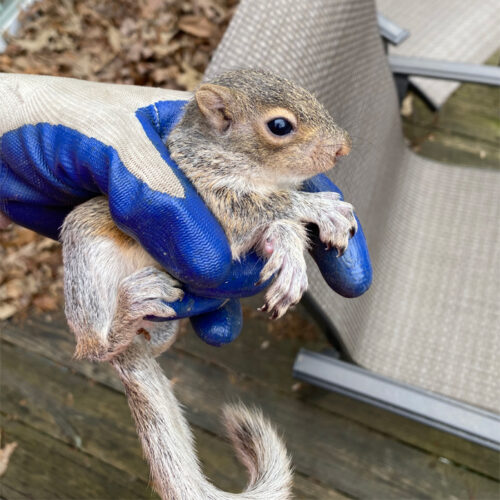Table of Contents
Squirrel Diseases
Often people want to get rid of squirrels in their home because they are noisy. Disease should also be a consideration. Squirrels are not known to transfer a massive number of diseases to humans. That does not mean it is safe to handle squirrels. It does not mean it is safe to leave them living inside your home. Whenever you think you have squirrels in your home the goal should be to get them out.
There are five main diseases that squirrels can transfer to humans directly:
Rabies
Squirrels can carry rabies. Squirrels are considered a low risk. No known transmission has happened but you do not want to be the first case! Rabies can cause headache, fever, muscle spasms, and confusion. If you or a pet get bit by a wild animal always seek medical attention.
Plague
Squirrels can carry the bubonic plague. You may have heard of parks or campgrounds getting temporarily closed because of the plague. This has occurred in Yosemite National park. This is a higher risk in the southwest. The plague is caused by the bacteria Yersinia Pestis. Some infected squirrels never show symptoms. While you can get the bacteria from direct contact it is more likely that fleas that bite the infected squirrels bite you as well. The flea bite will transfer the disease. Symptoms include fever, weakness, headache, swollen lymph nodes, abdominal pain, and abscess where bite occurred. Antibiotics must be started immediately to combat the disease. Fleas and ticks can remain in nesting areas inside peoples homes for days.
Tularemia
This is a bacteria that can be transmitted by direct squirrel bites, skin contact, flea, tick, or deer fly bites. You can even get it by drinking contaminated water. Francisella Tularensis is the bacteria responsible for this disease. The squirrel may appear healthy but dies suddenly. In humans tularemia results in fever which can get very high in some cases. Also ulcers may form near the site of infection. Skin ulcers for bites whether directly or insect bites. Mouth ulcers if infected by drinking water that was contaminated. Lymph nodes can become swollen. If untreated it can lead to lung disease, which can also occur if the bacteria was airborne in dust form. When a squirrel has made a nest in your home deer flies can transmit the disease throughout the house.
Leptospirosis
This is most often contracted through the droppings or urine of an infected squirrel. Squirrels can spray their urine. This can contaminate water, soil, and food sources. This disease can also be present in homes where squirrels have made nests. The symptoms include high fever, muscle pain, bleeding, headache, red eyes, and vomiting. Kidney and liver damage can result without treatment.
Salmonella
This is a bacteria. It can be found in squirrel dropping. People can get diarrhea, chills, abdominal pain, and fever from salmonella. Most cases can resolve on their own but some may require medical attention.
These risks can remain in squirrel nesting areas within your home. Any insulation that was in the area where squirrels used as their bathroom with be contaminated. Drywall can also be contaminated.

